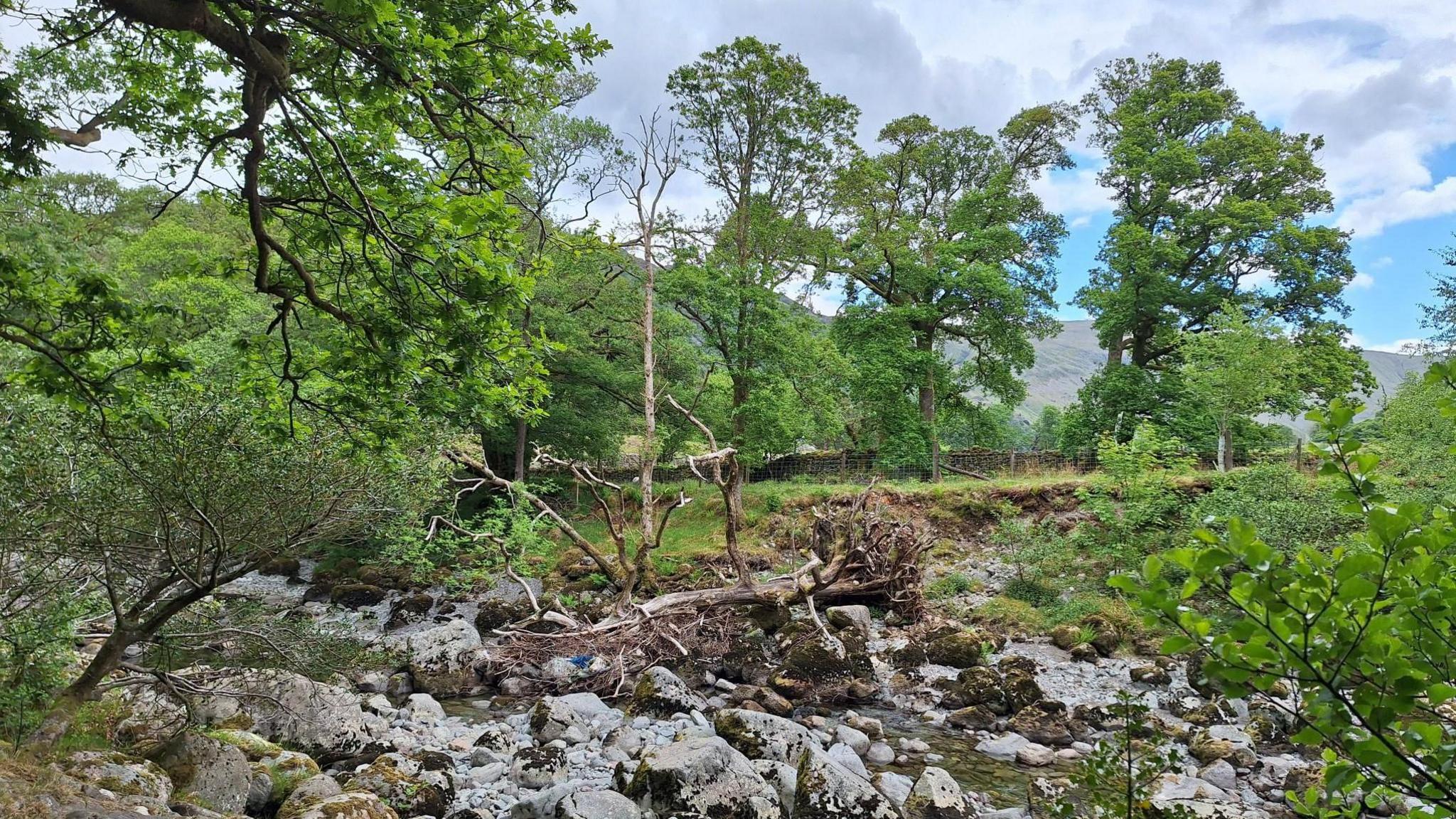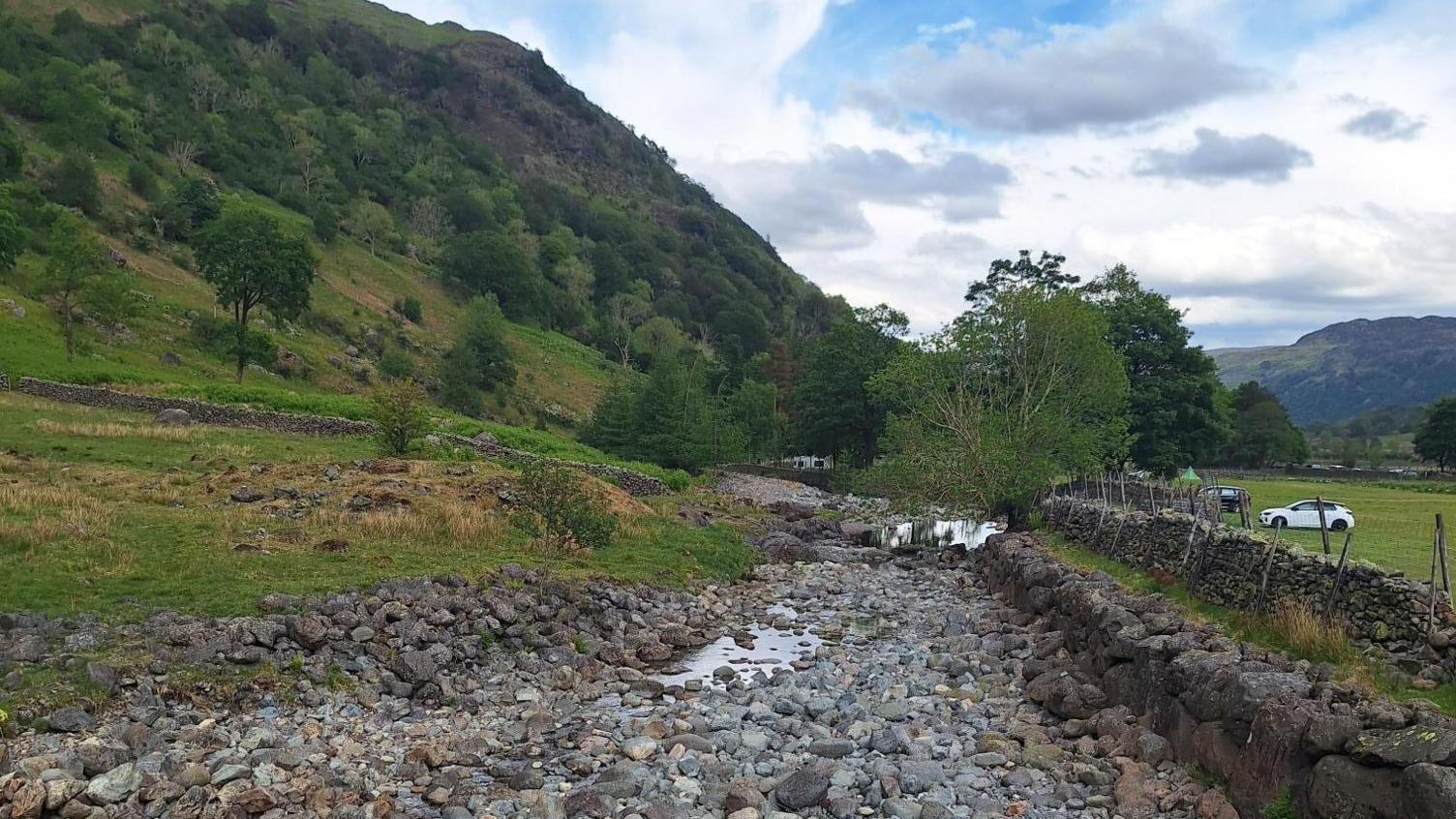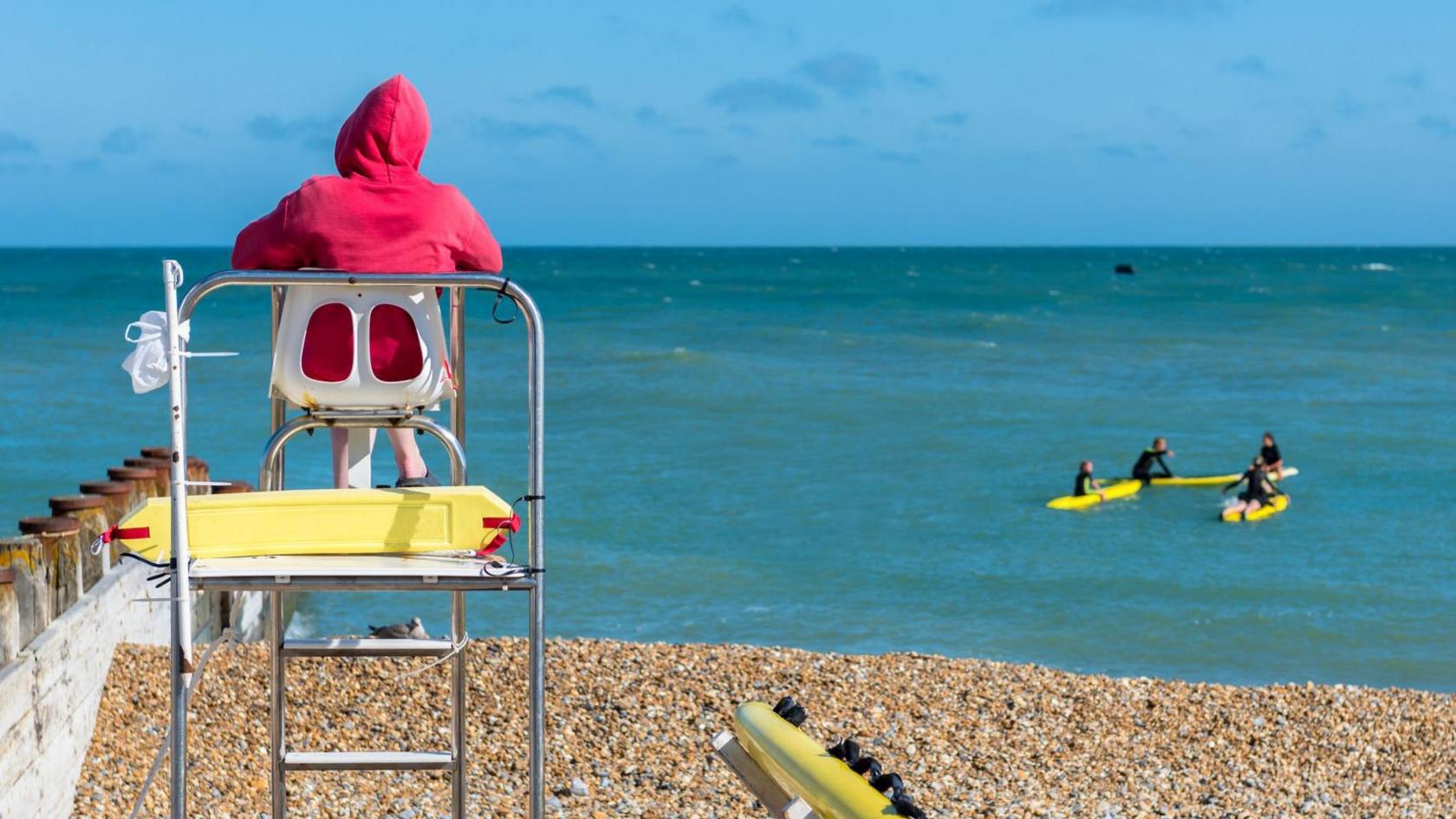Dry spell sees rivers hit 'critical point'

The Upper Derwent currently has very low water levels in areas around Borrowdale
- Published
High river temperatures are causing concern for the wellbeing of fish and other species, an environmental charity has warned.
West Cumbria Rivers Trust says its monitoring efforts have found a number of waterways with temperatures at or nearing 18C (64F) - the point at which it says cold-water fish such as trout and salmon begin to experience stress, with a potential impact on breeding and feeding habits.
It says the "unseasonably warm" weather of recent weeks has added to the long-term effects of climate change.
The organisation is calling for more tree planting near rivers to help provide shade and keep temperatures lower.
The trust found St John's Beck, a tributary of the River Derwent flowing from Thirlmere Reservoir, to have a temperature of 18C, while the River Greta at Keswick was 17C (62F).
The Upper Derwent, at Seathwaite, meanwhile, was 16.1C (61F) with water levels very low.
'Fish rescues'
The organisation's assistant director, Luke Bryant, said data showed the rivers were reaching a "critical point" ahead of the summer.
"Key species would be salmon and trout, but there are also eels and lots of other types of fish," he said.
"We're also seeing some rivers drying out, for example the upper reaches of the Derwent that feeds into Keswick, and that can affect food sources with wetland plants and insects potentially dying or their eggs being wasted.
"We are very anxious about it. It's been quite an unusual April and May that we've had - unseasonably warm."
He said while rain forecast for next week "would help", if there were a dry June or July then that could potentially lead to "even higher temperatures".
"Sometimes you might have to do drastic things like perform fish rescues. We go in and try and move the fish out of a section if we think the river is going to dry up, but that's quite an undertaking and it's not something we can do every day," he said.

At Seathwaite, the Upper Derwent has dried out in several spots
Mr Bryant said the local picture was also being seen nationally following decades of trees being cut down to make way for the straightening of rivers and to maximise space for sheep and cattle.
He believes re-planting is now needed.
"There are great tree planting projects all over Cumbria and indeed the UK, but there's more to do and obviously it takes years for trees to mature," he said.
"All river systems need a variety of habitats. It's about having a sort of dappled effect, with a bit of sunlight in places and shade in others, because different species like different conditions."
Follow BBC Cumbria on X, external, Facebook, external, Nextdoor and Instagram, external.
Get in touch
Do you have a story suggestion for BBC Cumbria?
- Published22 May
